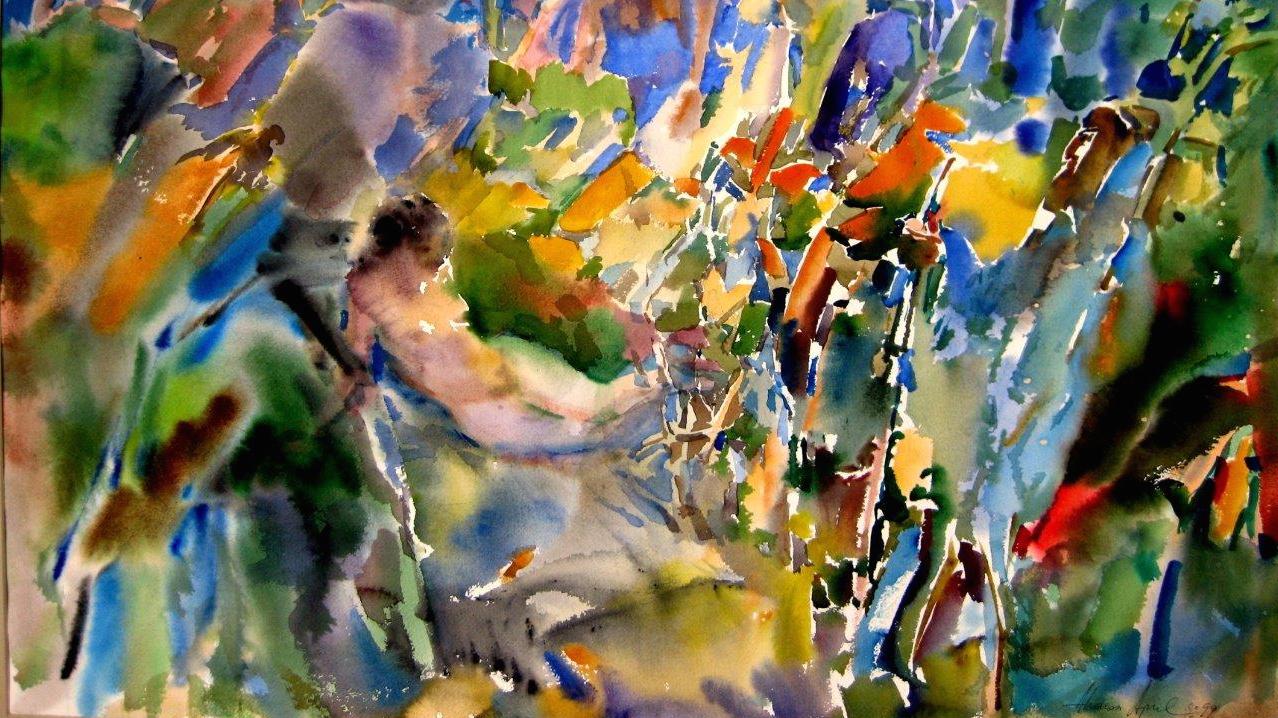If you’ve never read the Song of Songs in bed with someone that you love … you are missing out on one of the great religious experiences that our tradition has to offer!
Read the full text of Song of Songs in Hebrew and English here.
The Song of Songs (Shir ha-Shirim in Hebrew) is an unabashedly sensuous, even at times quite erotic, paean to love. Throughout its eight short chapters, an unnamed young man and young woman pursue one another through verdant fields and valleys lush with flowers. Their excitement to be together is palpable, captured in poetic stanzas like:
Behold my beloved, here he comes. He is leaping over the mountains, bounding through the hills. He is like a gazelle, a young stag … and he calls to me: “Arise my darling, my perfect one, come away with me!” (Song of Songs 2:8-10).
Or this:
With your help, My Jewish Learning can provide endless opportunities for learning, connection and discovery.
You have captured my heart, my own one, my bride. You have captured my heart, with one glance of your eyes, with one look at your décolletage. How sweet is your love, how much more delightful than wine! (Song of Songs 4:9-10)
The sheer delight this pair takes in one another can’t help but stir in us memories of love’s richness, especially when our lives were first touched with its magic. Indeed, the most famous line from the Song: “Ani l’dodi, v’dodi li” – “I am my beloved’s and my beloved is mine,” (Song of Songs 2:16) are often the words on the lips of couples on their wedding day, standing under their chuppah, anticipating a life of loving partnership.
The Song of Songs is considered one of the five megillot (scrolls), which are read on major festivals. It is traditionally chanted in the synagogue during Passover, due to its thematic connection with springtime. Following the mystical tradition, some Sephardic and Hasidic Jews have a custom to recite it each week on Shabbat evening, as Shabbat serves as a renewal of loving vows between God and the Jewish People. While the tradition ascribes the its authorship to King Solomon (Song of Songs Rabbah 1:1), who lived in the 10th century BCE, modern scholars note the many literary parallels with other love poetry and wedding songs from both Babylonia and Egypt and suggest a later date of composition, perhaps around the fourth through sixth centuries BCE.
It is unsurprising, given the racy nature of the Song of Songs, that its inclusion in the biblical canon was a matter of some controversy. In fact, it seems that it would have been excluded from the Bible altogether, if it did not have a powerful champion: As the Sages debated which books were to be included in the Scriptures, it is said that Rabbi Akiva – certainly the greatest rabbi of his era (late first century, early second century) – weighed in that “while all of the sacred writings are holy, the Song of Songs is the holy of holies!” (Mishnah, Yadayim 3:5).
The commentaries suggest that Rabbi Akiva’s affinity for the Song of Songs stems from his metaphorical understanding of its contents, reading the Song as an extended allegory to the loving relationship between God and Israel. Indeed, the tradition of understanding the Song as a metaphor for the Divine Eros, rather than the human, would go on to deeply inform such mystical texts at the Zohar, as well as the writings of the philosopher and scholar Maimonides, who said:
What is the proper form of the love of God? It is that he should love Adonai with a great, overpowering, fierce love as if he were love-sick for a woman and dwells on this constantly… And it is to this that Solomon refers allegorically when he says: ‘For I am love-sick’ (Song of Songs 2:5) for the whole of Song is a parable on this theme.” (Hilchot Teshuvah, 10:3)
Perhaps… but there is still room as well to read the Song in much more earthly terms, as a celebration of human partnership and an acknowledgement that physical love is not something base or ugly, but a gift from our Creator. Indeed the very first commandment given to the Adam and Eve in the Garden of Eden was that they should “be fruitful and multiply” (Genesis 1:28), a charge not to be ashamed by their sexuality but to be ennobled by it.
Adonai
Pronounced: ah-doe-NYE, Origin: Hebrew, a name for God.



